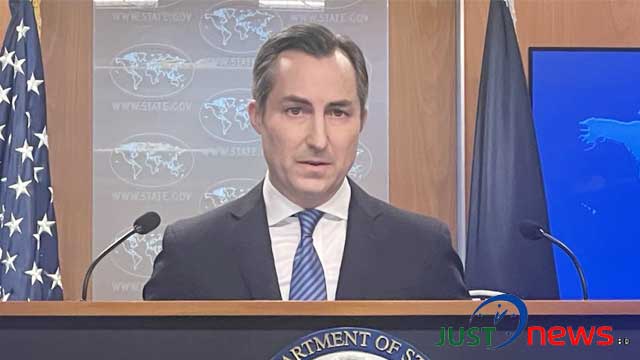Mushfiqul Fazal, State Department correspondent
The United States is following the case against Nobel laureate Professor Muhammad Yunus and will watch Bangladesh’s general election very closely.
The State Department spokesperson Matthew Miller made the remarks at a briefing in Washington on Wednesday. He said these while replying to queries from this correspondent on politically motivated verdict against Nobel laureate Professor Yunus and lopsided general election scheduled to be held on January 7 in Bangladesh.
When journalist Mushfiqul Fazal drew the attention to the verdict against Nobel laureate and Presidential Medal of Honor recipient Professor Muhammad Yunus by Dhaka court on New Year’s Day, the State Department spokesperson said they were following the case against Professor Yunus closely.
Miller said Professor Yunus had made significant contributions to the alleviation of poverty around the world, as reflected in his Nobel Peace Prize and numerous other international honours.
He further said, “We’ve seen, of course, the widespread international criticism of the verdict. For our part, we have encouraged the Bangladeshi Government to ensure a fair and transparent legal process, and we will continue to follow any further developments closely.”
On January 1, the Dhaka Third Labour Court sentenced Yunus and three other top officials of Grameen Telecom to six months’ simple imprisonment in a case over violations of the labour law.
Mentioning the next general election as a dummy election, the questioner asked whether the Biden administration would legitimize such an election or take any punitive measure against the Bangladesh government.
In reply, the State Department spokesperson said, “We support a free and fair election in Bangladesh. We have made that quite clear a number of times. We will watch the elections very closely, but of course I would never speculate in advance about what actions we may or may not take in response to any development.”
MR/





